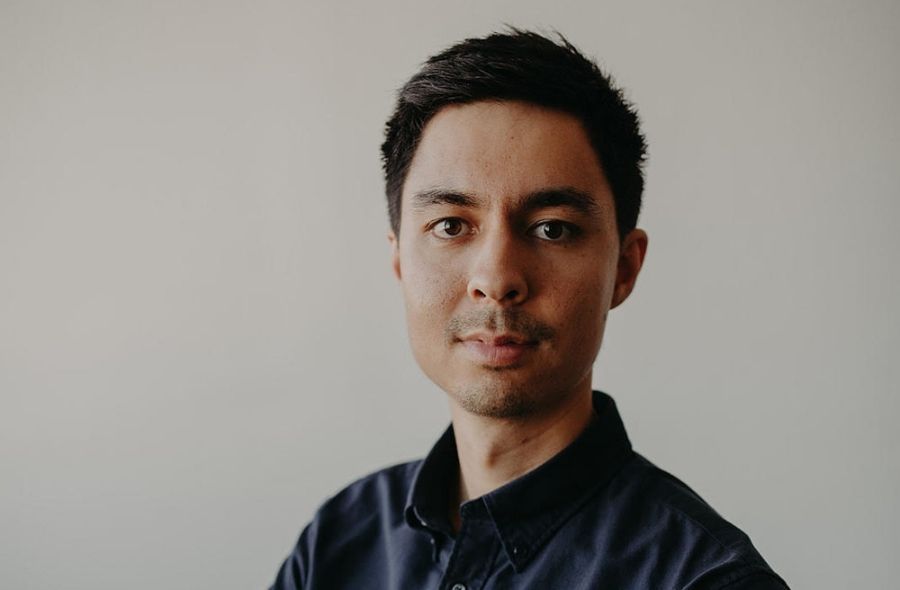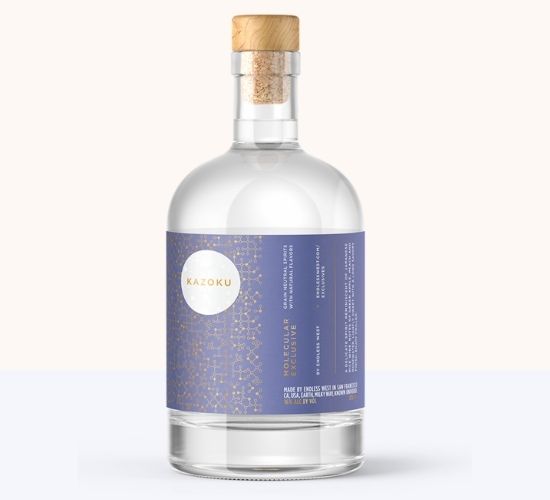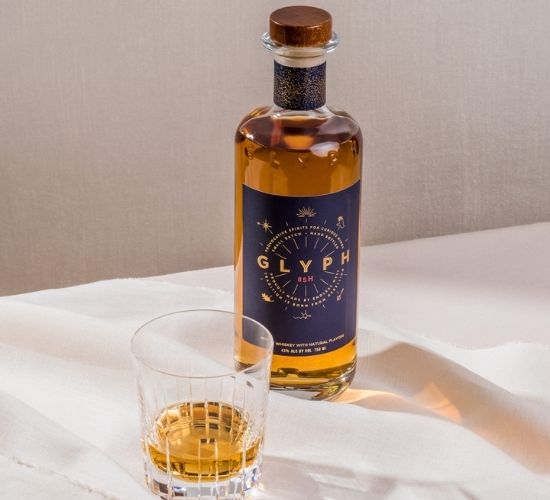May, 2024
San Francisco, USA

Alec Lee with a background in biotechnology from University of British Columbia, Completed his MBA form Harvard. Duing his masters in Harvard Alec, was a cofounder of two startups in his first years. Later in 2016, Alec along with scientist, Mardonn Chua and sommelier, Josh Decolongon founded the World’s First Molecular Whiskey, Glyph. Glyph has won numerous awards and is the first whisky created note by note, using molecules extracted pure from more efficient sources in nature. Endless West the parents company, has also produced a rice free sake, Kazoku. Read to know more about the what Endless West has to offer to the industry.
Originally from Detroit, Michigan, I studied biotechnology at the University of British Columbia. I co-founded two startups before and during my first year in the Harvard Business School MBA program. It was at this time that my co-founder of Endless West - Mardonn Chua - reached out to me and said that he had a bold idea to explore: recreating expensive, rare fine wines to be able to share with others who normally couldn’t get access to them. This idea evolved into the development of a molecular spirits company now known as Endless West.
Endless West is a molecular spirits company based in San Francisco. It all began when my colleague and co-founder, Mardonn Chua, took a trip to Napa in 2015. Mardonn was curious about what it would take to recreate famous, rare wines from a purely objective and scientific point of view. From there we began developing the foundations of Endless West. We figured that if we could combine the right molecules in the right proportions, we could make something that smelled and tasted exactly like some of the most noted and sought-after wines in the world.
We began experimenting with identifying what was prototypical about a particular style of wine and then determining the factors responsible for those flavors and aromas. From there, we felt like the possibilities for customization were endless. In our first six months we focused on research and development, creating formulas and working through academic research. An additional six months was spent perfecting our formulas and then two years later we launched the first Endless West product.
Key advantages (beyond savings) of our molecular spirits process for future clients:
1) Convenience. We produce faster than the market - with customization capabilities.
2) Scalability. We create products that grow with your brand without compromising
availability, quality, or price.
3) Sustainability. Our technology requires less water and land usage and has a smaller CO2 footprint compared to traditional production methods.

Image source: Kazoku
Glyph was created using analytical chemistry to create a molecular map of whiskey, including everything from taste to aroma and mouthfeel. Typically these components of traditional whisky develop through the aging process. Those molecules we find in wine and spirits occur elsewhere in nature and can be extracted more efficiently and more quickly than through traditional aging. To produce the unique flavors of whiskey, we source molecules from resource-efficient natural sources. For example, esters found in fruit, sugars found in cane and corn, and acids found in citrus and wood, etc.
Our thought behind this unique spirit production process is an ode to our motto, “All of the Spirit, None of the Rules.” Innovation begins when you start thinking outside of the box, and by creating spirits using a different and broader set of tools, we are excited to be expanding the world and art of spirit making. We’re not coming to the table telling the industry you need to stop making spirits because it’s bad for the environment, but we do believe our process is well-suited for mass-market application because, ultimately, it’s faster, more affordable and more sustainable than the current process. We used this same type of process to create Kazoku too.
We want to see a world where quality and availability are not in conflict in the wine and spirits space.
We think that food and beverage is one of the last frontiers of digitization. I liken a lot of the work we do to the digitization of music. The digitization of music has largely expanded the availability of great art to people.
Imagine being able to recreate a rare spirit in a much more sustainable way - less water usage, less land usage, and less carbon emissions vs. traditional distilling and manufacturing practices. Imagine being able to customize the flavor and aroma of your favorite spiced rum. These are just a few ways in which we believe our take on digitization/digitalization will separate us from the pack...while driving value to the industry.
I guide my team by setting a vision for us to continue to push ourselves and the industry into uncharted territories for the betterment of all. This all falls under the spirit of our name - Endless West.
We chose to first launch a product inspired by whiskey as we knew that it would be seen and respected as the hardest category to map with our technology by the industry. We knew that if we could crack the code on the Scotch Whiskey category - then we could easily apply our tech to other categories.
With the success of Glyph - we have been able to successfully map to most spirits categories and RTD base variants. We have also been able to develop high quality and easily customizable bulk spirits and concentrates at rates and pricing that are unmatched within the industry.
Empirically, no – not better than random chance. Certainly, we’ve come across those who are retroactively sure they would have picked ours out of a lineup even if they were tasting it blind. But we have many years now of compelling data that, served without any prompting, a taster would be none the wiser that our product is unaged.
Our spirits have won the highest honors that a brand could receive from respectable competitions such as the San Francisco World Spirits Competition, London Spirits Competition, and the Beverage Testing Institute.

Image source: Glyph
In terms of the technical challenge, developing Glyph was like any other endeavor where you’re forging a new frontier: little existing expertise to draw on, a handful of cheerleaders rooting for you, and a whole lot of naysayers telling you it’s impossible. But once you have your core product, the hard part is figuring out when it’s really ready for market because you could always benefit from one more month of improvements. The biggest challenges are the philosophical ones like that. Another one that comes up often is that food & beverage are a unique sector where people perceive it to be objective like perhaps engineering cars, but in fact it’s much more subjective like fashion. For most products that meet some basic level of quality, what makes one beverage better than another is more often than not merely a matter of personal preference. So for most people it’s extremely difficult to separate “this product is objectively bad” from “this product doesn’t suit my personal preferences” – and that differentiation is critical when you’re creating products for people whose preferences may or may not align with your own. We can measure which car has the fastest 0-60 time, but we can’t measure which whiskey has the best flavor. All of this can be summed up as one big challenge: parsing out the effects of personal preferences, objective quality and flavor, brand identity, and expectation bias due to price or even our novel method of production
We have two sides of our business portfolio at Endless West:
1) A Consumer Division, and 2) And B2B Division that we call “Blank Collective”.
For our Consumer Division - we focus on establishing distribution in traditional channels (i.e., Off-Premise and On-Premise) and eRetail platforms. Our core strategy is to drive proof of concept with Glyph through media, PR, tasting competitions, and strong distributor relationships.
For “Blank Collectie (our B2B Division) - we focus on trade shows and client word-of-mouth to drive lead generation and trial for our bulk, concentrate and private label services.
One of my favorite things about the Wine & Spirits industry is the immense diversity of stories and visions that come to the table to create an incredibly varied offering of products. So I reject the premise that all brands are able to – or even should – integrate innovation into their models. Part of the authenticity of many brands is exactly that they don’t innovate and their products and processes have remained unchanged for generations. At the same time, I think innovation is under-appreciated in our industry. We’re in the midst of a generational shift in consumer behavior in our industry and I think most brands will have to learn how to embrace innovation if they want to have a seat at the table. That being said - we are expecting to see continued and stronger trends towards the development of spirits that are:
1) Fully sustainable (liquid, packaging and supply chain)
2) Cater to healthier lifestyles (i.e., low alc, natural / non-gmo / organic, low sugar, gluten
free, etc.)
3) Higher quality at lower prices
Our team has a lot of great plans for the expansion of Endless West. We are excited to continue exploring customer growth opportunities from an on and off premise perspective. Our whiskey, Glyph, is offered in bars and restaurants across the country and can be found in liquor retailers throughout California. Additionally, we are expanding our corporate and production operations into new markets.
The beverage alcohol industry is certainly unique. Few products are stepped in as much human history as alcohol. Few products also have such consumer ubiquity and accessibility while also being intensely regulated. But many of the core principles of starting and running a company in this industry are the same as in any other.
Absolutely!
The bulk of our innovation will be launched via our “Blank Collective” B2B Division. This means that our clients will be able to take full advantage of our tech as we expand and explore new categories.
Interviewed by Prithvi Nagpal, Beverage Trade Network